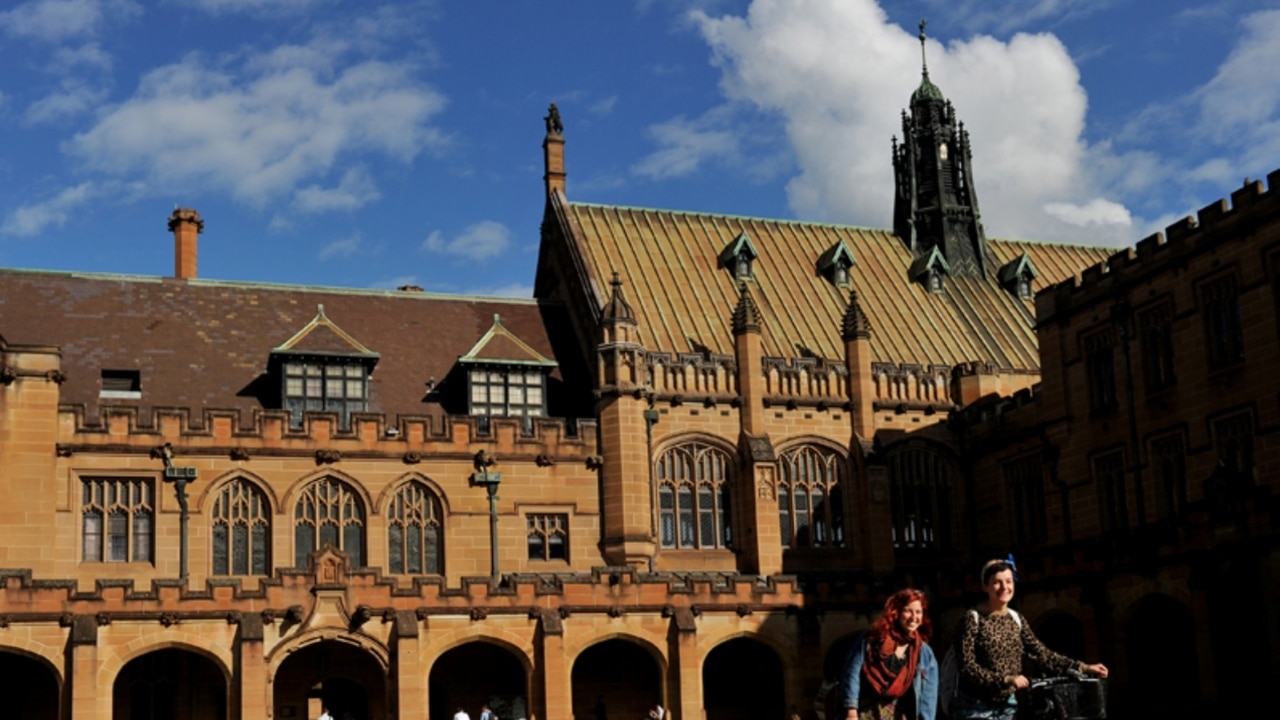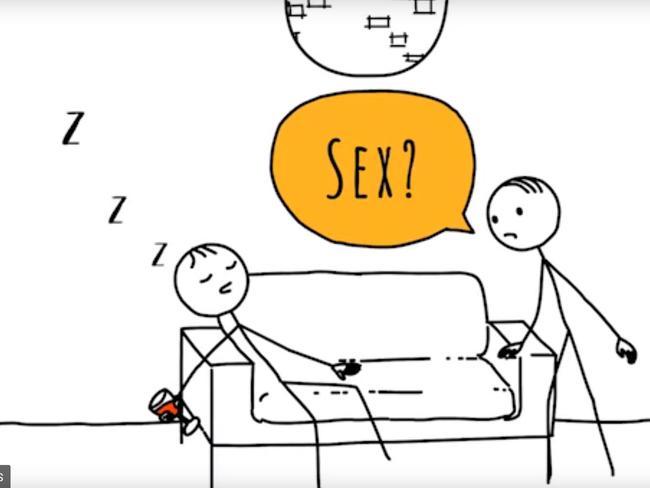Sydney University’s Consent Matters Course is tokenistic
A SYDNEY university has been slammed after it put together an online course with stick figures to try and stop sexual assaults.

OPINION
SYDNEY University is rolling out an online course that purportedly teaches students that they need an enthusiastic ‘yes’ from their partner before any sort of sexual conduct — including kissing — on campus.
But ‘consent matters’ is tokenistic, and won’t produce any meaningful change.
The uni, which has been slammed for not only its dangerous initiation culture — which many people living on campus are subject to — but for actually covering up sexual assault accusations, has rolled out the course to show they are ‘trying’ to do something.
But the online course, which includes stick figure graphics, has been slammed by students, academics and sexual assault experts as tokenistic.
Already students and experts have told the university’s senior management that if they genuinely want to prevent sexual assault on campus, a cheap ‘tick the box’ online course is not a good way to go.
In fact when the online “Consent Matters” course was first trialled last year, students blasted it by pointing out that respondents didn’t even need to tick an answer, let alone the right answer, to pass through it.
There is also very little evidence to suggest that an online module will be effective in shifting attitudes or behaviours.

For students in the residential colleges in particular, evidence based, face-to-face training delivered by experts would be a far more suitable option. And it is sorely needed.
After all, last year a study by the Australian Human Rights Commission found that college students (those living on campus) were around seven times more likely to be raped or sexually assaulted at the uni, compared to non-college students.
A second study by former Sex Discrimination Commissioner, Elizabeth Broderick, last year found that 12 per cent of all rapes and attempted rapes at the Sydney University colleges happen during a single week: O week.
Indeed O week is by far the most dangerous week of the year to be a female student on campus. So much so that students and sexual assault experts refer to it as “the red zone”.
Karen Willis, the Executive Officer of the NSW Rape Crisis Centre, says that her service can always tell when it’s O Week, as their service receives an increase in the number of calls for help from university students who have been raped during this week.
“The [residential colleges] give us a stack of work. [College students] who are outside of the normal controls and measure of their communities back home feel they now have the freedom and the entitlement to act out on their impulses,” she said.
“Others have heard stories from older brothers and dads about ‘sowing wild oats’ and enter university thinking that it’s now their time to enjoy ‘sex on tap’. This leads to a culture of sexual entitlement.”
So if the university is serious about shifting those figures, why are they investing in a tokenistic online course that their own and other academics are panning?
The answer, of course, is that it is far cheaper than investing in face-to-face training for the college students.
But while an online consent module may give the appearance of action and reform, in reality it merely pulls focus from the need for more meaningful action.
It also serves as a figleaf, concealing the university’s atrocious history of covering up sexual assault and failing to act in the best interests of students.
Last year, for example, Sydney University attempted to block police from releasing shocking footage of a sexual assault captured on CCTV in a university car park.
The footage — which also included still images of the unknown alleged perpetrator — was released by police despite attempts to block it by the university.
Channel 7 and news.com.au obtained the footage after Alison Sandy, the Freedom Of Information editor for Channel 7 appealed the universities blockade.
If the university is genuinely committed to protecting the safety of students, they should be doing everything in their power to help police in their efforts to track down and apprehend offenders.
They should also be doing everything in their power to ensure that the courses they run with students stand up to their own standards of academic rigour.
Nina Funnell is a Walkley Award winning journalist and an ambassador for End Rape On Campus Australia. She is a former student and staff member from the University of Sydney.
Follow her on Twitter: @ninafunnell




